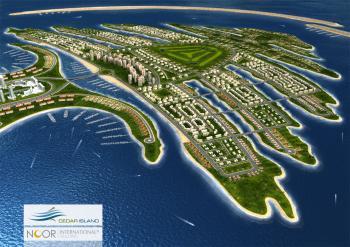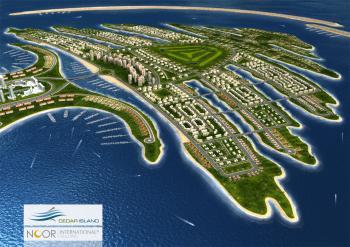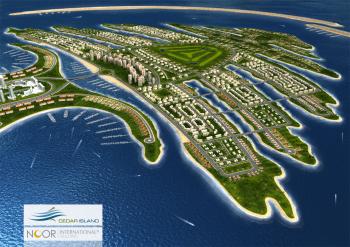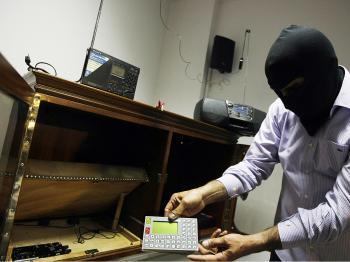BEIRUT, Lebanon—A massive team of architects, engineers, and environmental consultants are sweating over the technical plans for a 3,311 square kilometer island off the coast of Lebanon. Headed up by Dr. Muhammad Saleh, a civil engineer and chairman of the real estate development company pushing the venture, they are now making their case to the Lebanese people and government for the proposed resort in the Mediterranean Sea.
Saleh’s company, Noor International Holdings, is behind the venture. It is proposed that the island will hold residential, commercial, recreational, and tourist facilities, as well as being equipped for permanent inhabitants. The Minister of Tourism has encouraged the US$ 8 billion idea, but the project is still pending permits from some quarters of the Lebanese bureaucracy.
Despite the country’s fragile political situation and the global financial crisis, Noor is certain that the project will be a major success. Investment from around the world, and hundreds of inquiries about the project from government and businesses, were significant signs, Noor believes, that people have faith in the country.
A New York Times commentary on Jan. 11 also describes Beirut as “poised to reclaim its title as the Paris of the Middle East” in 2009.
Dr. Saleh believes Lebanon is safe amidst the financial crisis, having been fairly well protected by the relative isolation of its financial sector from the international system.
A tourist project of this nature will not only attract travelers from around the world, helping Lebanon to boost economic revenues, but also provide around 50,000 job opportunities for citizens, Saleh says. Many Lebanese working and living abroad will therefore also be encouraged to return to their home country.
The biggest questions raised for Noor, however, come from environmentalists. While the Divers Union, fishermen and Green Peace are all against the project, Noor gives assurances that marine life, already endangered in Lebanon, will develop after the island is built.
The company says it is looking into the environmental issues, and that it is committed to reclamation laws when it comes to deciding on the project’s location: “In the long run, the island will become a new habitat for aquatic life, and a hot diving site for diving enthusiasts,” Saleh told The Epoch Times.
Saleh’s company, Noor International Holdings, is behind the venture. It is proposed that the island will hold residential, commercial, recreational, and tourist facilities, as well as being equipped for permanent inhabitants. The Minister of Tourism has encouraged the US$ 8 billion idea, but the project is still pending permits from some quarters of the Lebanese bureaucracy.
Economic Boost, Job Opportunities
Despite the country’s fragile political situation and the global financial crisis, Noor is certain that the project will be a major success. Investment from around the world, and hundreds of inquiries about the project from government and businesses, were significant signs, Noor believes, that people have faith in the country.
A New York Times commentary on Jan. 11 also describes Beirut as “poised to reclaim its title as the Paris of the Middle East” in 2009.
Dr. Saleh believes Lebanon is safe amidst the financial crisis, having been fairly well protected by the relative isolation of its financial sector from the international system.
A tourist project of this nature will not only attract travelers from around the world, helping Lebanon to boost economic revenues, but also provide around 50,000 job opportunities for citizens, Saleh says. Many Lebanese working and living abroad will therefore also be encouraged to return to their home country.
Environmental Concerns
The biggest questions raised for Noor, however, come from environmentalists. While the Divers Union, fishermen and Green Peace are all against the project, Noor gives assurances that marine life, already endangered in Lebanon, will develop after the island is built.
The company says it is looking into the environmental issues, and that it is committed to reclamation laws when it comes to deciding on the project’s location: “In the long run, the island will become a new habitat for aquatic life, and a hot diving site for diving enthusiasts,” Saleh told The Epoch Times.





